NEWS
2025.07.01
Interview: The first prize winner in the 23rd Valencia Iturbi International Piano Competition, Nabeel Hayek, chose the Shigeru Kawai SK-EX full concert grand piano for his performance of Brahms’ First Piano Concerto
Interviewer/Writer: Akemi Alink (Pianist / International Piano Competition Reporter)
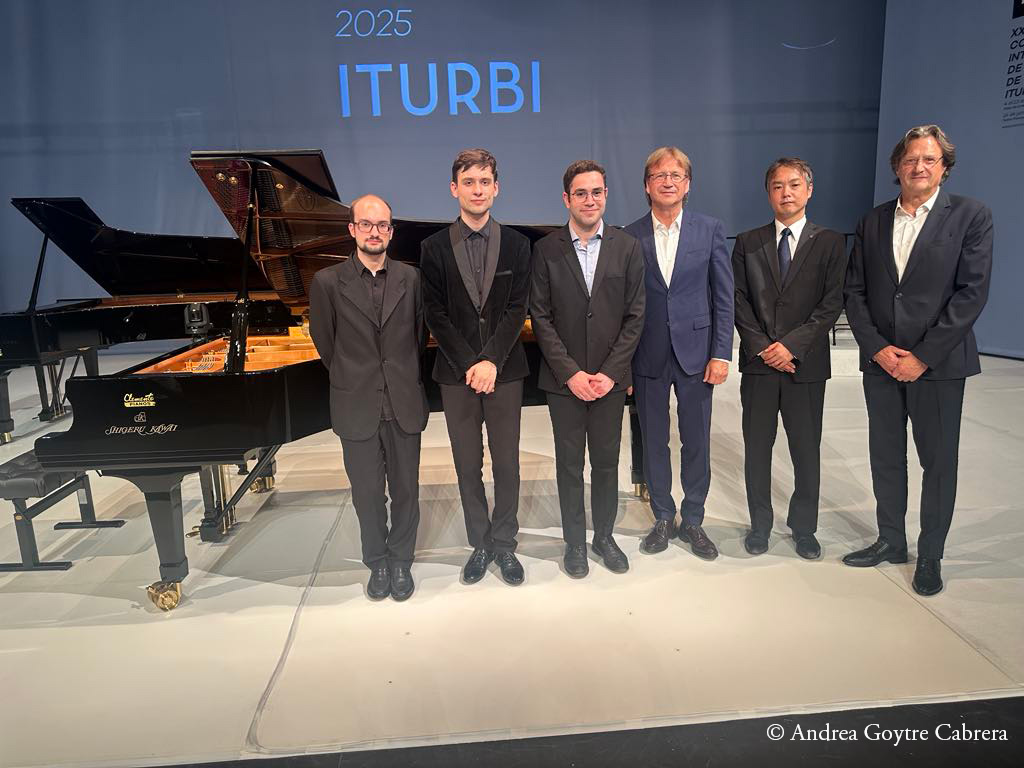
(From left) Ruggiero Fiorella, Uladzislau Khandohi, Nabeel Hayek, Mr. Luis Clemente (Bilbao Trading Partnership S. L.), Mr. Kiyotoshi Yokoyama (Kawai’s piano technician), and Javier Clemente (Clemente Pianos)
The 23rd Valencia Iturbi International Piano Competition took place from 4 to 14 June 2025 in Spain.
The competition was established in 1981 with the aim of honouring and preserving the legacy of the great Valencian pianist José Iturbi. Today, it’s one of the most Important International Piano Competitions in Spain.
In 2025, 200 pianists applied and 22 pianists could pass the pre-selection. This competition also has a reserve list for which 22 pianists were selected. After the pre-selection, the live competition consisted of four rounds, the programme included a piece by Spanish composers, a piece by Mozart, a piece by Beethoven, a commissioned piece and two piano concertos.
Official pianos of this edition were Steinway and Shigeru Kawai.
The results of the 23rd Valencia Iturbi International Piano Competition
1st prize: Nabeel Hayek (€30,000, CD recording & concert tour)
2nd Prize: Uladzislau Khandohi (€20,000 & concert tour)
3rd prize: Ruggiero Fiorella (€10,000 & concert tour)
Finalist Prizes: Emin Kiourktchian, Eugenia Sánchez Durán and Yungyung Guo (€5,000 each)
For more details: https://pianoiturbi.dival.es/en/
Interviews
Nabeel Hayek (1st prize winner)
Congratulations on your first prize! I know that you had to prepare for this competition within a week. That’s incredible!
Thank you very much! I still cannot believe that I won first prize. It’s really exciting!
Actually, I was number 21 on the waiting list after the pre-selection. On May 26, one week before the competition started, I got an email from the competition office asking if I could participate. Since I hadn’t passed the pre-selection, I had almost forgotten about the competition… so I was shocked.
I needed a few days to think before accepting. Then I immediately booked a flight and hotel, and started working intensively on new pieces by Mozart, Chopin, Granados, and Mariné (the commissioned work). I was lucky that the competition provided us with plenty of practice time on good grand pianos.
It was also an amazing opportunity to perform two of my favorite piano concertos with the Orquestra de València for the first time. Participating in this competition was a fantastic gift for me.
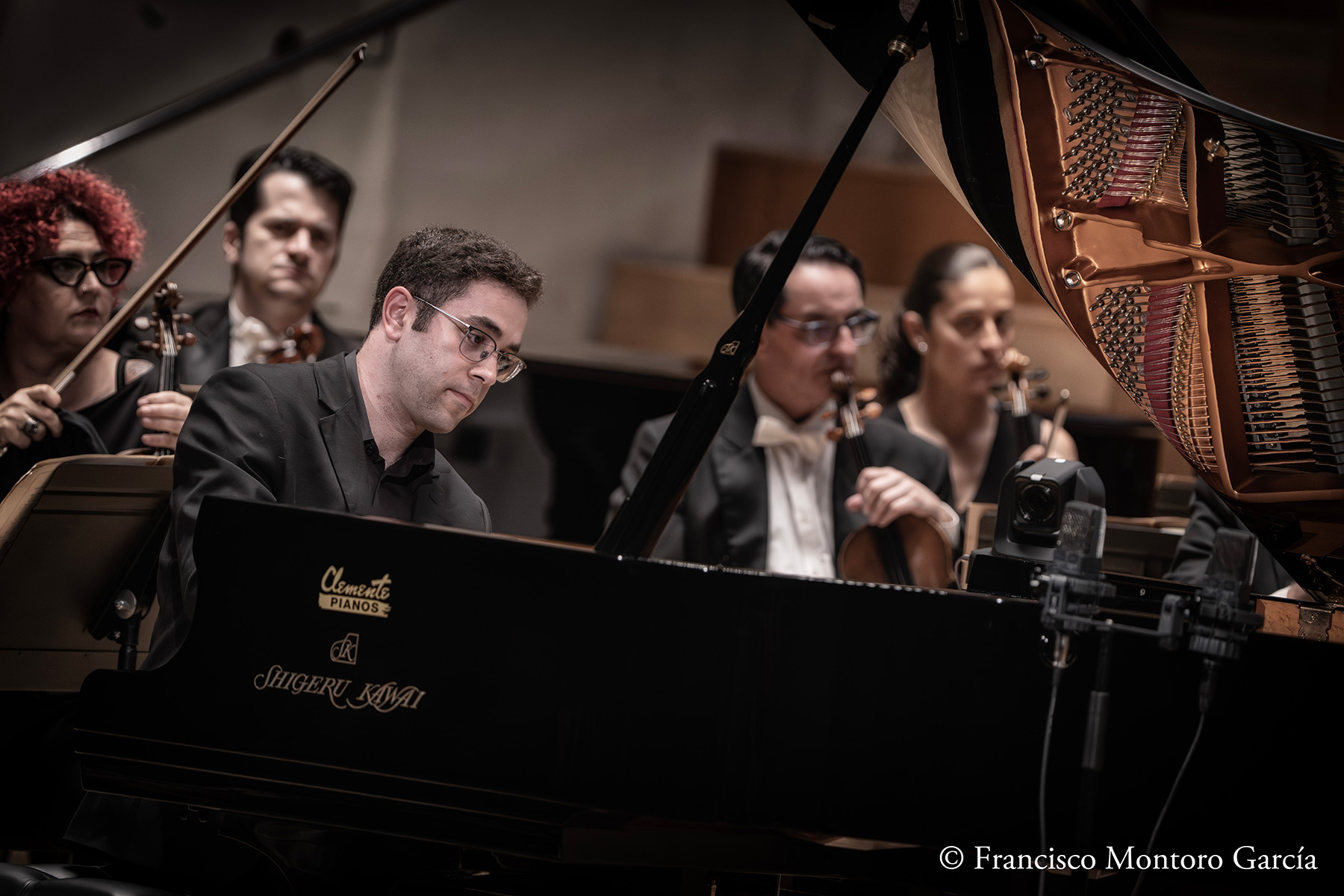
I only came for the grand final round, but I heard from other people that you played the solo rounds and the Beethoven Concerto on a Steinway, and then changed to a Shigeru Kawai for the Brahms Concerto in the grand final round.
Yes, that’s true. The Steinway sounded great and allowed me to express all the colors I needed, especially for the solo-round repertoire. I really enjoyed it!
But for the Brahms Concerto in the big hall, I felt that the Shigeru Kawai had the sound I was looking for — warm, lyrical, and round, with a rich bass. And actually, I’ve gotten used to playing on a Shigeru Kawai over the past two years because my teacher has one. I wanted to feel comfortable on stage (laughs).
Both instruments are excellent and offer different things. It’s a very personal preference. At some competitions, participants aren’t allowed to switch pianos between rounds, but at the Iturbi Competition, it was possible — so I was lucky.
I believe Brahms is your favorite composer. You played his concerto and Op. 116 in the first round. Some jury members told me later that your performance of Op. 116 was fantastic.
Yes, he’s one of my favorite composers. I’ve played many of his works: solo pieces, chamber music, and songs. I even played his Symphony No. 4 with my friend, the arrangement for two pianos by Brahms himself.
I love his musical language. It’s so distinctive — the textures in his music are immediately recognizable as Brahms. His writing is very pianistic, even though it’s complex and polyphonic. It’s just wonderful to play his music.
Do you have any plans for the future?
It’s been a very intense few weeks, so I need a bit of rest first! (laughs)
After that, I’ll focus on getting my DMA (Doctor of Musical Arts), because I also love to teach. I’ve always envisioned my future career as a combination of solo and chamber performance alongside teaching — not one or the other.
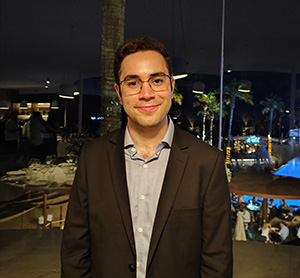
Uladzislau Khandohi (2nd prize winner)
I was really enjoy listening to your Prokofiev’s 2nd concerto. You also have received the audience award. Congratulations!
Thank you very much. I was little bit nervous, because it was the first time for me to perform that concerto. I also participated in another competition just before this, so I didn’t have so much time to prepare for this Prokofiev concerto, but I’m happy that it went well.
I always performed piano concertos by Tchaikovsky or Rachmaninoff for the competitions in the past. Actually, it was the idea of my teacher to study a new concerto, and I’m really happy that I have played it.
This concerto was written after the death of Prokofiev’s friend and is very special.
The 2nd and 4th movements are more realistic and materialistic, while the 1st movement is like a Cosmos, something huge and the 3rd movement is something that doesn’t exist. It’s very hard to describe… Anyway, I really love this concerto and it’s one of my favorite concertos. Now, I also want to learn Brahms’ 2nd concerto!
You played on Shigeru Kawai SK-EX full concert grand piano at the ceremony. What did you think about the instrument?
I like it very much, especially the warm sound!
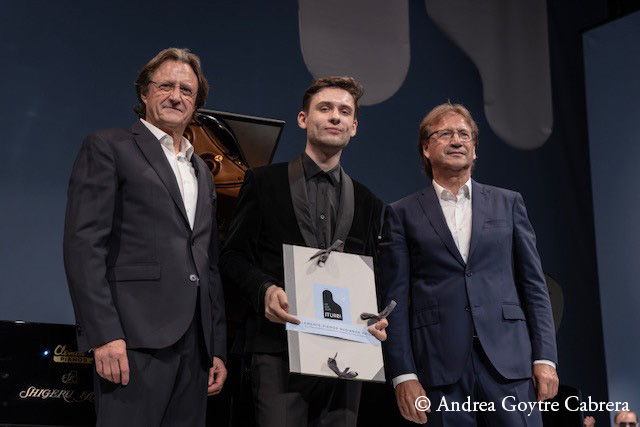
Ruggiero Fiorella (3rd prize winner)
Congratulations for your third prize! Why did you choose Shigeru Kawai?
Thank you very much! I chose Shigeru Kawai, because it was so comfortable to play. I also like the colour of the sound, so I played on Shigeru Kawai throughout the competition, although it was possible to change the instrument each round.
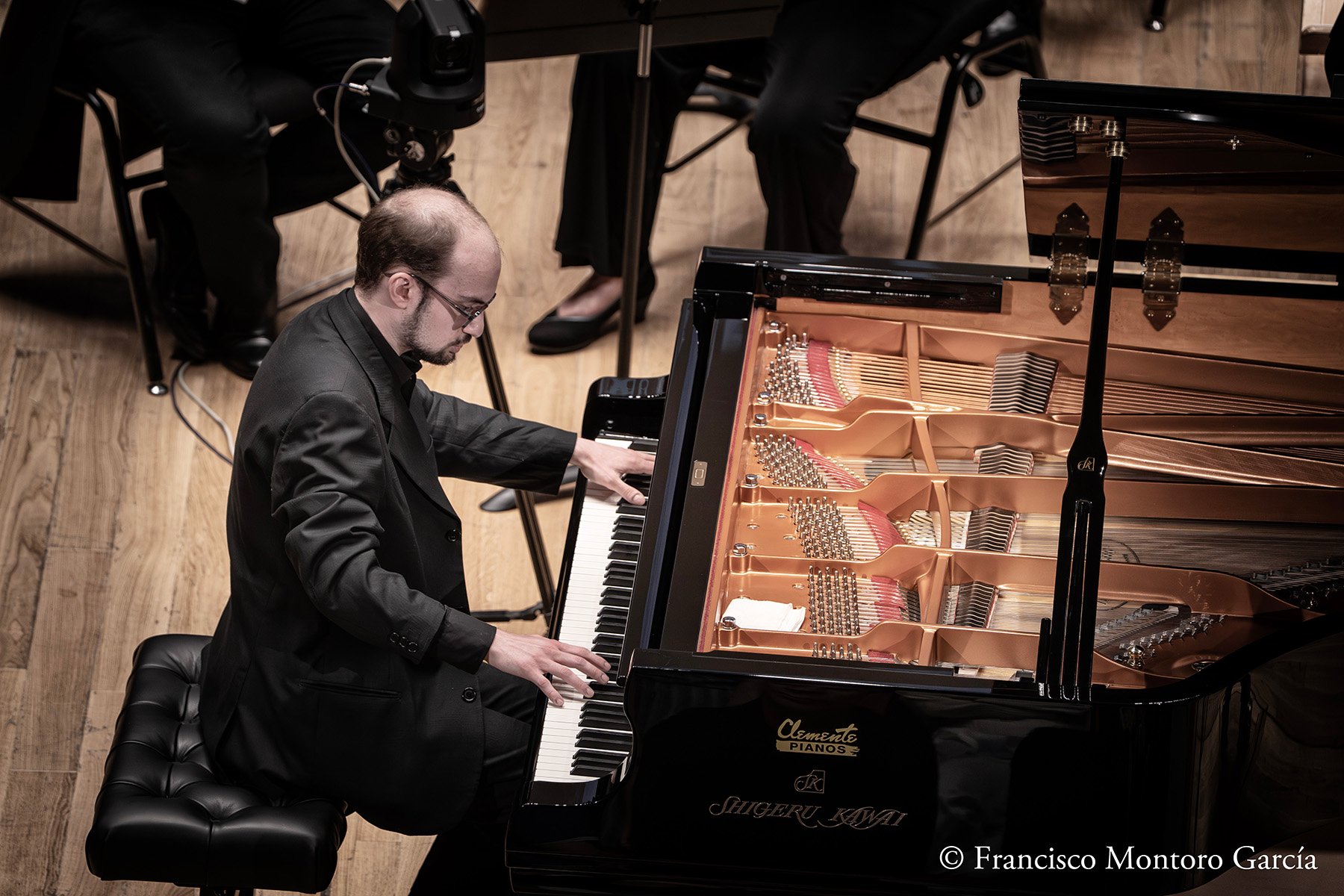
I was unable to attend the solo rounds, but I could hear your beautiful performance of Chopin’s Nocturne at the Award Ceremony and you have also received a special prize for the best performance of a Chopin piece. Is Chopin your favorite composer?
I would not say I have a favorite composer, and I try to look at interesting things in all styles.
Of course, I could hear that from your Chopin, and from the last movement of the Prokofiev concerto No.2, some sadness etc… I could hear some sensitivity.
Thank you. I love the second theme of the last movement of Prokofiev’s concerto. You can hear the deepness of Prokofiev’s approach. Actually, I first thought to include a Schumann piece instead of Chopin’s Ballade, but I wanted to make a Chopin’s section… I was happy to receive the special prize for my performance of Chopin!
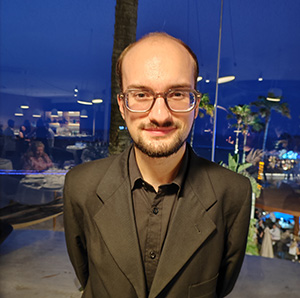
Joaquín Achúcarro (President of the Jury)
Thanks very much for your time. This is your 3rd time to be president of the jury. How was your experience this time?
I’m happy to be a president again. I have a team which works very well, so you don’t need to think about anything (laughs). I found the Shigeru Kawai was a beautiful instrument. My role here is to try to understand how well and what positive things the competitors have, instead of trying to find negative things.
Could you give some comments for young pianists?
I worked 48 hours a week when I prepared to participate in the Liverpool competition in 1959, and today anyone works very hard. We can hear that from the level of muscular technique of young pianists. It’s unbelievable.
We also need to think about the relationship between music, composers, piano and sound. The piano has possibilities to produce a tremendous variety of sound and it’s very hard to make the piano speak… but, I love that!
Performance
The prizewinners’ performances are available to watch here.
About the Valencia Iturbi International Piano Competition
The Jose Iturbi International Piano Competition was launched by the Diputació of València in 1981 to pay homage to the Valencian pianist, composer and orchestra director, José Iturbi, who died on June 28th, 1980 in Beverly Hills. As of today, the competition has become a platform to support new talent who try to break through the competitive world of the piano.
Official website: https://pianoiturbi.dival.es/en/
About the Shigeru Kawai SK-EX full concert grand piano
Unveiled in 2001 as the flagship instrument of the Shigeru Kawai line, the SK-EX concert grand piano is hand-crafted in limited numbers following a unique ‘prototyping’ creation process. In order to achieve the supreme range of expression required in a concert piano, each instrument utilises a variety of carefully selected materials, with premium aged spruce soundboards. Shigeru Kawai instruments adopt the advanced Millennium III keyboard action, featuring extended wooden keys and advanced ABS Carbon action parts, providing superior speed and responsiveness than conventional wooden action parts, allowing pianists to express a greater range of feeling and emotion in their performance.
Shigeru Kawai official website: https://www.shigerukawai.jp/en/

